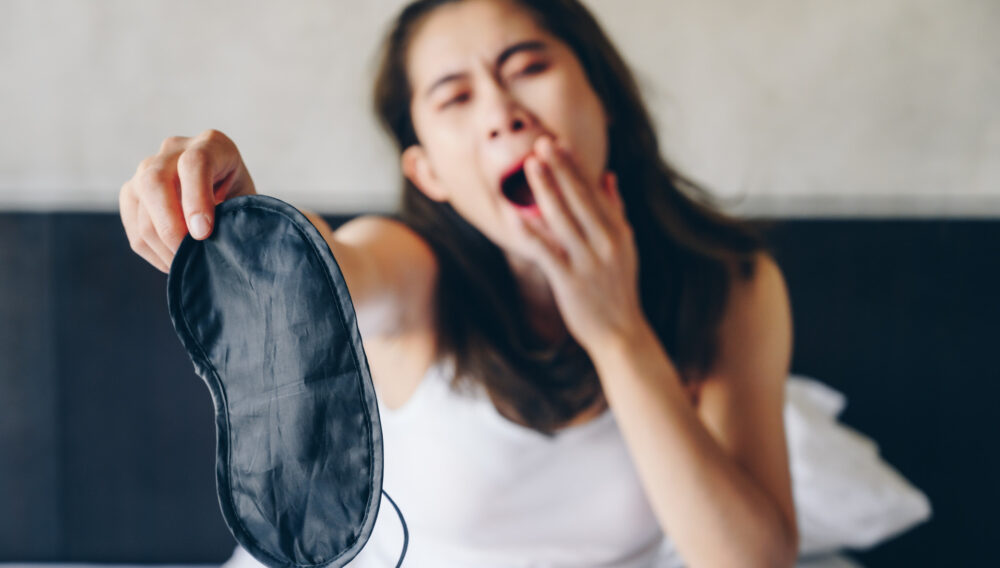How Does Sleep Deprivation Affect Your Health?

Sleep deprivation can take its toll on mental and physical health. Not getting enough shut-eye leads to more than simply feeling tired. Poor sleep hygiene increases serious risk of health issues like diabetes and cardiovascular disease, to name a few.
Here, we’ll explore the importance of getting enough rest for both mind and body well-being, what can happen if you don’t, and how to get into a healthier routine.
What Is Sleep Deprivation?
Sleep deprivation is when you don’t get enough sleep for an extended period. It isn’t the same as insomnia, which is when you try but can’t fall asleep.
Adults need seven to nine hours of sleep every night and need to go through four or five sleep cycles. A cycle is made of four stages:
- Stage 1: Light sleep, happening when you first fall asleep or between cycles (5% of cycle).
- Stage 2: Deeper sleep, which is linked to memory storage and learning (45% of cycle).
- Stage 3: Deepest sleep, linked to recovery and renewal (25% of cycle).
- Stage 4: Rapid eye movement, the dreaming phase, or REM sleep (25% of cycle).
Failure to get enough sleep slowly damages health. In the short term, people feel tired and sleepy. They may be irritable or unmotivated. Trouble focusing, thinking, or remembering things is also common. In the long term, the effects grow more severe.
What Are the Effects of Sleep Deprivation?
Those who don’t practice good sleep hygiene face serious long-term physical and mental effects of sleep deprivation.
Physical Effects of Sleep Deprivation
- Lowered immunity
- Falling asleep at the wrong time
- Weight gain
- Diabetes
- Heart and circulatory issues
- Tremors and muscle spasms
- Increased pain, achy joints, heartburn, and migraines
Mental Effects of Sleep Deprivation
- Impaired judgment and impulsivity
- Increased anxiety
- Bipolar disorder and manias
- Depression
What Is Sleep Hygiene?
Creating a routine, a restful environment, and a schedule that supports getting enough uninterrupted sleep are what constitute sleep hygiene. Habits matter, as they help set your internal clock and create a predictable wind-down routine that sets you up to relax and fall asleep. Here are some tips:
- Use an alarm clock to tell you when to start getting ready for bed. Having a fixed schedule for falling asleep is as important as having one for waking up.
- Create a consistent routine of getting ready for bed.
- Stay off electronic screens for at least an hour before bed. Stretching, reading, and meditation can help you wind down.
- Dim the lights, block noise, and add calming scents to create a relaxing environment.
- Get lots of physical exercise and sun exposure during the day to support your sleep rhythm.
- Pay attention to your health, limiting smoking, alcohol consumption, and junk food.
Although sleep deprivation is different from insomnia, your habits may become so entrenched that you do, indeed, fall into insomnia. Among the options for relief is cognitive behavioral therapy for insomnia (CBT-I), which is a treatment that helps you restructure the feelings, thoughts, or behaviors that prevent a good night’s sleep.
How Can You Make a Difference with a Health Sciences Degree?
A bachelor’s degree in health sciences can give you a solid understanding of overall health and wellness, including how to promote good sleep hygiene. It opens doors to careers in sleep research, sleep therapy, psychology roles specializing in sleep, sleep technicians, and even sleep lab managers. Each plays a role in understanding sleep deprivation and sleep disorders, as well as helping to diagnose and treat them. CBT-I, nutrition, exercise, and technology all play a part.
If helping others overcome their health and wellness challenges sounds like an appealing career, pursuing a health sciences degree may be right for you. With the right education, you can help people improve their physical and mental well-being.



